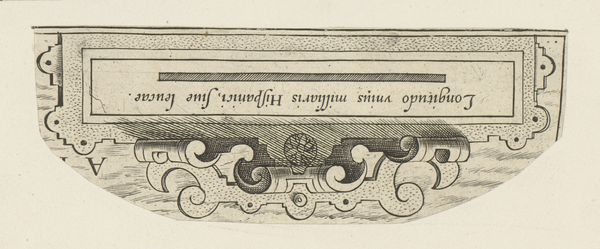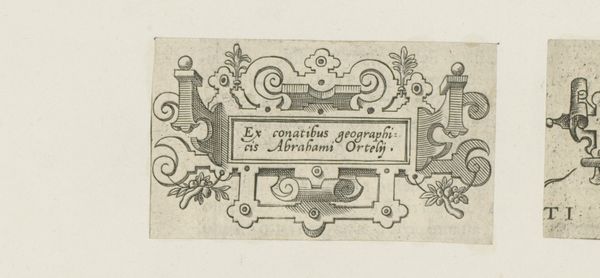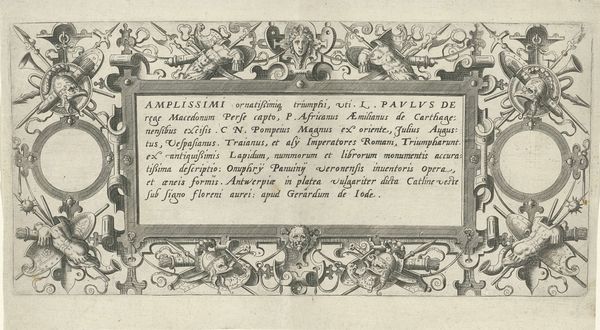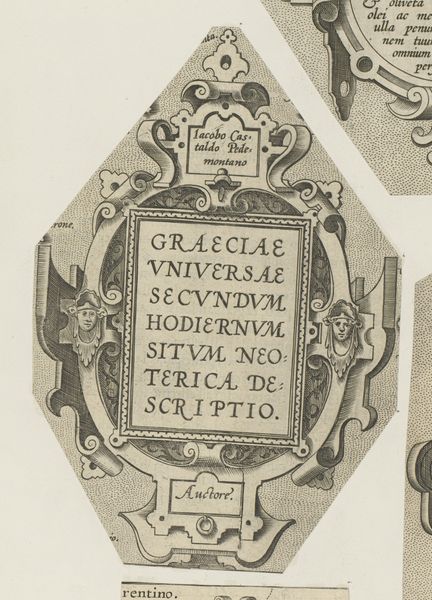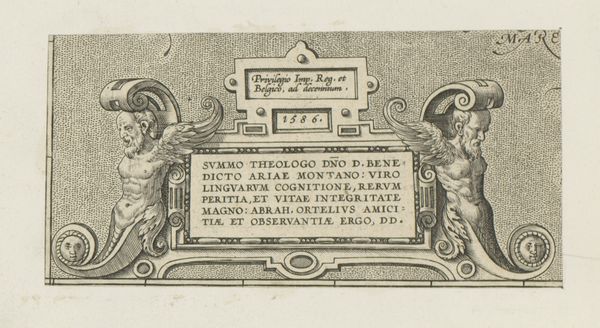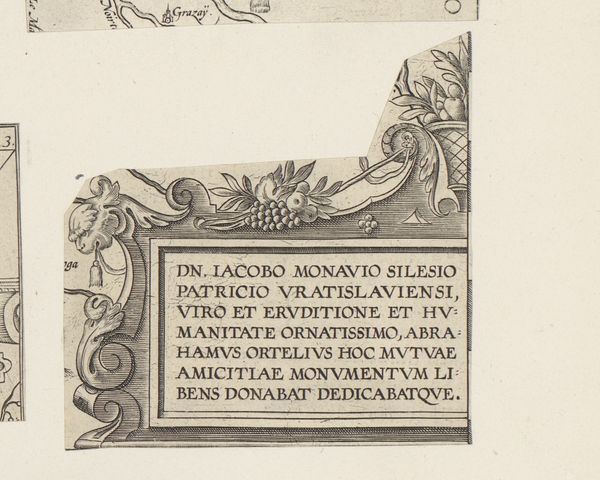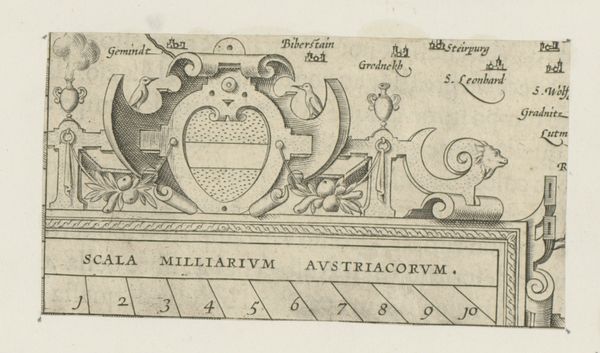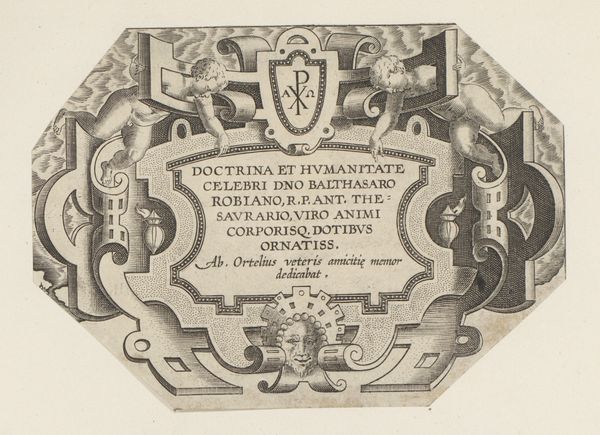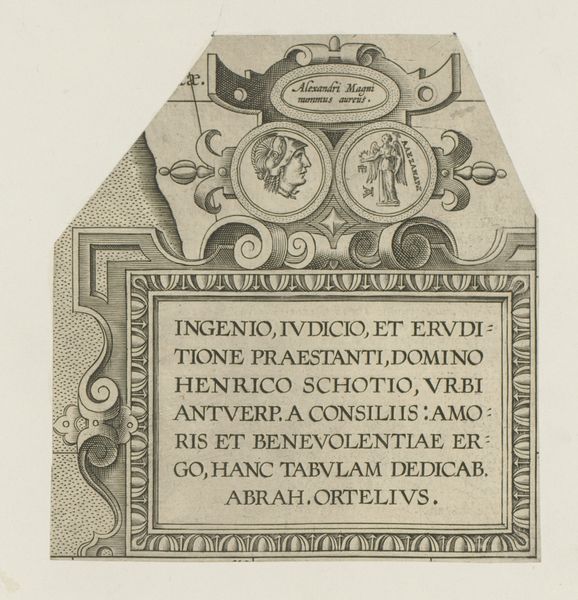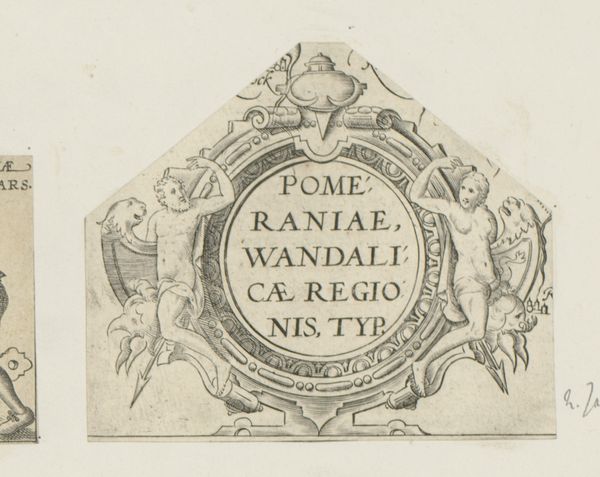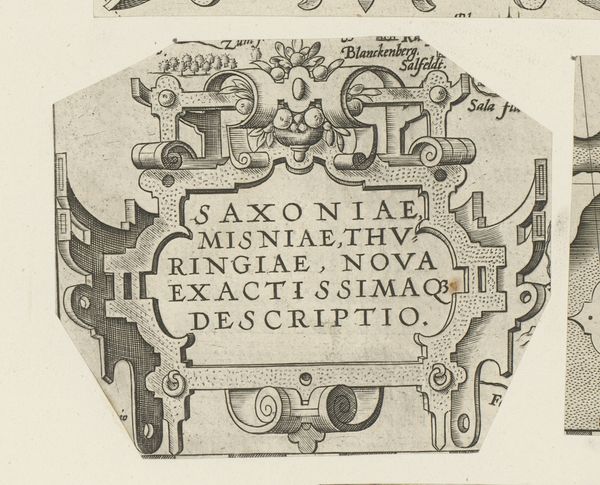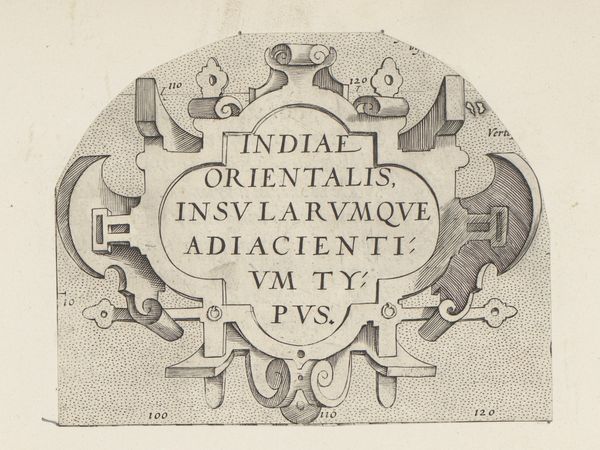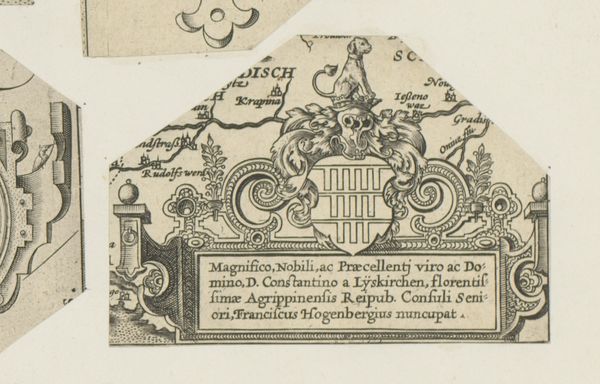
graphic-art, print, engraving
#
graphic-art
#
pen drawing
# print
#
pen sketch
#
old engraving style
#
form
#
11_renaissance
#
line
#
engraving
Dimensions: height 64 mm, width 154 mm
Copyright: Rijks Museum: Open Domain
This elongated cartouche with bunches of fruit and a putto was made by an anonymous artist. The cherubic putto, a common motif in Renaissance and Baroque art, sits atop the cartouche, hands clasped in a gesture of blessing or offering. This figure, derived from classical Cupid or Eros, represents divine love. The inclusion of fruit evokes classical associations with abundance and fertility, reminiscent of the cornucopia, a symbol of unending nourishment. Consider the Dionysian festivals of ancient Greece, where such imagery was rife, celebrating the life-giving forces of nature. The cartouche, framed by these symbols, serves as a declaration. The putto’s reappearance across centuries—from ancient Roman sarcophagi to Renaissance paintings—suggests a persistent cultural memory. These motifs are never truly new, but cyclical, each iteration echoing past meanings while adapting to its present.
Comments
No comments
Be the first to comment and join the conversation on the ultimate creative platform.
